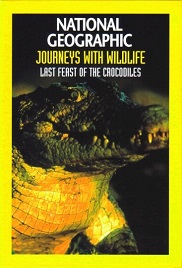

Details
National Geographic: The Last Feast of the Crocodiles (1996) is a captivating documentary that delves into the devastating effects of the 1991 South African drought. This immersive film takes viewers on a journey to the River Limpopo, where the receding waters reveal a horrifying glimpse into the struggle for survival in the animal kingdom.
The focus of the documentary is not only on the physical consequences of the drought but also on the social implications it brings. As the river levels decrease, rivalries among different animal species intensify as they compete for limited resources. This leads to fascinating territorial confrontations and unexpected alliances, providing a thrilling and thought-provoking exploration of the animal behavior in times of crisis.
With stunning cinematography, The Last Feast of the Crocodiles offers a visually striking portrayal of the harsh realities faced by African wildlife during a severe water shortage. It presents a unique perspective on how the ecosystem, already fragile, is profoundly impacted by drastic changes in weather patterns. The intricate and complex connections between predator and prey, survival tactics, and natural instincts are all intricately woven into the narrative.
This National Geographic production delves deep into the world of crocodiles and other predatory creatures, showcasing their relentless pursuit of prey during this trying period. Audiences will be on the edge of their seats as they witness the primal struggles for dominance and survival unfold. Ultimately, The Last Feast of the Crocodiles serves as a powerful reminder of the fragile balance between humans and the natural world we share.
The focus of the documentary is not only on the physical consequences of the drought but also on the social implications it brings. As the river levels decrease, rivalries among different animal species intensify as they compete for limited resources. This leads to fascinating territorial confrontations and unexpected alliances, providing a thrilling and thought-provoking exploration of the animal behavior in times of crisis.
With stunning cinematography, The Last Feast of the Crocodiles offers a visually striking portrayal of the harsh realities faced by African wildlife during a severe water shortage. It presents a unique perspective on how the ecosystem, already fragile, is profoundly impacted by drastic changes in weather patterns. The intricate and complex connections between predator and prey, survival tactics, and natural instincts are all intricately woven into the narrative.
This National Geographic production delves deep into the world of crocodiles and other predatory creatures, showcasing their relentless pursuit of prey during this trying period. Audiences will be on the edge of their seats as they witness the primal struggles for dominance and survival unfold. Ultimately, The Last Feast of the Crocodiles serves as a powerful reminder of the fragile balance between humans and the natural world we share.